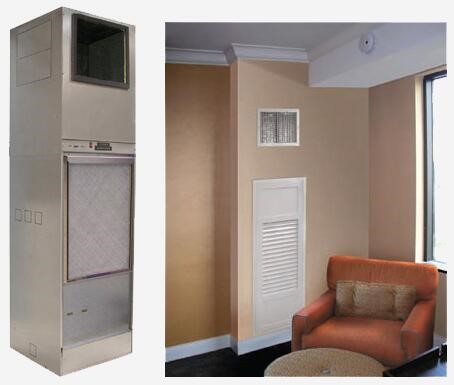Reducing HVAC noise (Heating, Ventilation, and Air Conditioning) or heat pump noise can significantly improve comfort levels within a building, particularly in spaces where occupants desire quiet.
This article will address HVAC noise in condo apartments and residential homes.
More...
Another article deals with the noise of the condo building common mechanical equipment.
A quiet HVAC system is most effectively achieved during initial design and construction. Unfortunately, this is often neglected, and clients call me to reduce the noise of existing systems.
There is no government-mandated maximum noise level in residential spaces. Industry organizations provide a guide. ASHRAE recommends a maximum noise level of 35 dBA or NC 30. In many apartments, this level is exceeded.
Sources of HVAC noise
There are several noise sources in HVAC systems, including condominium heat pumps:
Depending on the severity of each noise source, some or all need to be addressed in the system's design. A quiet system is most effectively achieved at the initial design and construction of the system. Unfortunately, this is often neglected, and clients call me to reduce the noise of existing systems.
Reducing heat pump noise
Follow these steps to reduce HVAC noise or heat pump noise. First, call an HVAC technician to ensure the system functions correctly and repair it if needed. Lubricate moving parts, tighten loose components and replace worn-out parts to prevent excessive noise caused by friction or vibration.
If a technician does not resolve the problem, you must engage an acoustical consultant to suggest improvements. The acoustical consultant will assess if some of these steps will reduce the noise:
Most of these strategies for HVAC noise or heat pump noise reduction require expert knowledge to implement effectively. Seek the advice of an acoustical engineer. Use the button below to contact the author of this article.
We always appreciate your feedback. If you have a question or comment about HVAC noise or heat pump noise, submit it using the form below.
